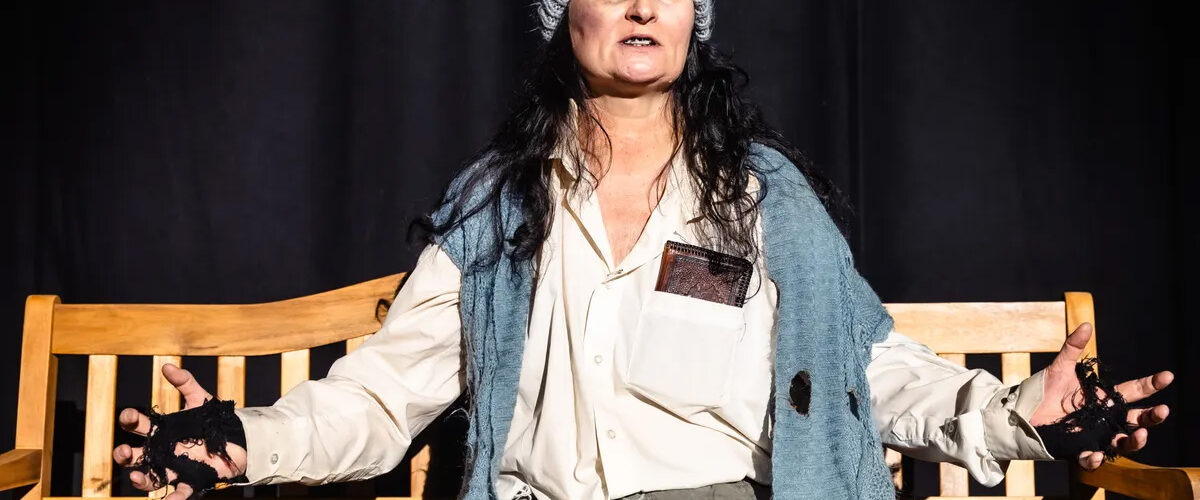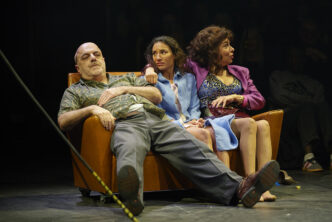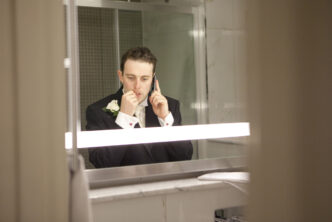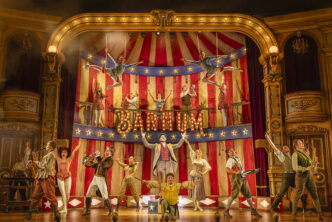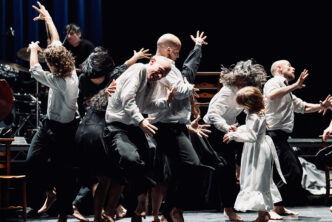How does a person end up sleeping rough in a hostel and spending their days camped out on a park bench asking strangers for loose change in exchange for a swift rendition of Danny Boy? More specifically, how does a woman fall so much lower rather than a man, whom we could easily dismiss as weak or unable to withstand life’s vicissitudes?
Myra’s Story goes some way to answering that question with a bravura performance from Fionna Hewitt-Twamley as the eponymous Myra strafing the streets of Dublin with foul-mouthed tirades against stingy passersby who won’t give her money for her ‘medicine’.
The play has been a hit across America, Ireland and beyond and while there is certainly more than a touch of Mrs Brown in Brian Foster’s portrayal of this Dublin tough, it is easy to see why audiences warm to Myra’s unique comic take on life.
This is Myra’s story told in monologue form but she is not the only character on stage: Hewitt-Twamley takes on whole Dublin neighbourhoods in her trawl through her life, from her booze-addled father, the tenement neighbours who could have come straight out of a Sean O’Casey play, to her good-for-nothing husband Tommy who runs off at the first sight of their newly-delivered child. Hewitt-Twamley’s range and command of character is astonishing, switching from the deep baritone of her ‘da’ and his willingness to surrender to drink, to hard-bitten neighbour Bridie never without a Woodbine stationed at the corner of her mouth along with a quickie wit.
The odds are stacked against Myra in this dirty old town right from the beginning and she never rises beyond her tenement origins. The tragic death of her mother (too pat a reminiscence to fulfil any dramatic or emotional charge) only confirms her father’s desire to spend more time with the bottle than with Myra. Her only chance of escape comes with marriage at 16 to equally desperate escapee Tommy, who casts himself as a poet of Dublin’s soul if that soul were Bob Dylan’s.
If it all sounds rather gloomy, it’s not. Foster has created an unforgettable character in Myra full of beauty and bile, half swear word, half banshee. Her take on their wedding night and the subsequent bedroom antics had the audience in tears. Sometimes the humour is sly and devious, sometimes obvious, but at all times it comes with a relish of profanities designed to show the F-word to life.
The show occasionally falls into sentimentality and a view of ‘Oirish’ as cliched as Mrs Brown’s, but at its heart is a heartfelt plea for us to recognise the humanity of people like Myra who didn’t just fall on hard times but were born into them.

